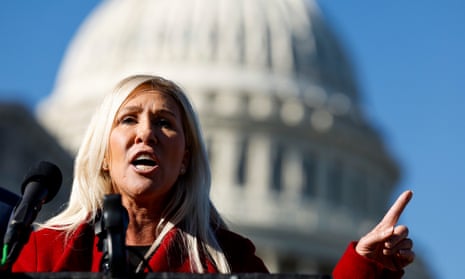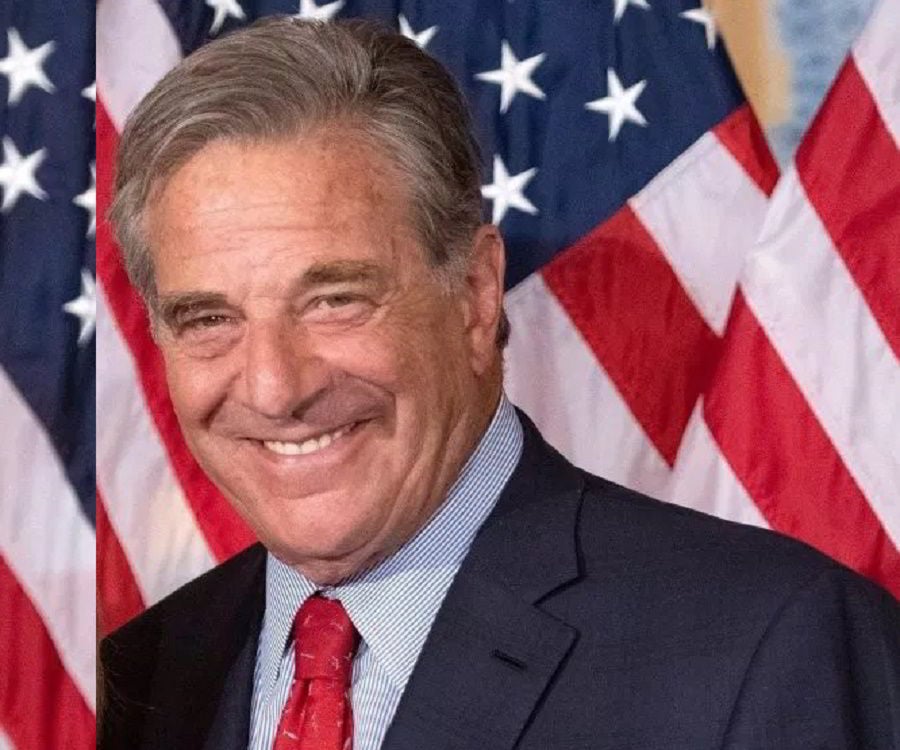Last Updated on June 29, 2024 by

Marjorie Taylor Greene, born on May 27, 1974, in Milledgeville, Georgia, is a controversial American politician and businesswoman. Before entering the political arena, Greene had a diverse professional background, ranging from running a construction company to owning a CrossFit gym. She graduated from the University of Georgia with a Bachelor of Business Administration.
Greene gained national attention in 2020 when she won the Republican primary for Georgia’s 14th congressional district. Her political rise was marked by her alignment with far-right ideologies and outspoken support for then-President Donald Trump. Despite her victory, Greene’s controversial statements and promotion of conspiracy theories, including QAnon, drew criticism from both Democrats and some Republicans.
In January 2021, shortly after taking office, Greene faced backlash for her past social media activity endorsing violence against prominent Democrats and spreading baseless conspiracy theories. The House of Representatives subsequently voted to strip her of committee assignments, an unusual move highlighting the severity of the concerns surrounding her.
Despite these controversies, Marjorie Taylor Greene has remained a prominent figure within the Republican Party, with a loyal following among certain conservative factions. Her political career reflects the polarization within American politics and the challenges faced by the GOP in navigating internal divisions.
Greene’s political trajectory may have evolved, so I recommend checking more recent sources for the latest information on her career and controversies.
Marjorie Taylor Greene’s entry into politics was a departure from her previous endeavors in the business world. Before becoming a congresswoman, she founded a construction company and later owned a CrossFit gym. These experiences contributed to her image as a self-made businesswoman, resonating with a segment of her political base.
During her campaign for Congress, Greene positioned herself as a staunch conservative, aligning closely with Donald Trump’s agenda. Her victory in the Republican primary was a testament to the influence of Trumpism within the party. However, her association with far-right ideologies and conspiracy theories led to increased scrutiny.
One of the most notable controversies surrounding Greene was her endorsement of QAnon, a baseless and debunked conspiracy theory alleging a global child sex-trafficking ring. Despite disavowing QAnon during her campaign, her past statements continued to haunt her political career.
In response to revelations about her social media posts endorsing violence against Democratic officials and supporting conspiracy theories, the House of Representatives took the unprecedented step of stripping Greene of her committee assignments. This move reflected bipartisan concerns about her fitness for office and raised questions about the role of extreme ideologies within mainstream politics.
Marjorie Taylor Greene’s tenure in Congress has been marked by a confrontational style, often challenging established norms and engaging in public spats with other lawmakers. Her influence within the GOP remains a subject of debate, with some seeing her as a disruptor challenging the status quo, while others view her as a symbol of the party’s internal struggles.
As she continues her political journey, Marjorie Taylor Greene’s actions and statements will likely remain under close scrutiny, reflecting broader discussions about the direction of the Republican Party and the role of extreme ideologies in American politics.
Marjorie Taylor Greene’s impact extends beyond her controversies, as she has actively championed conservative causes. Her policy positions align with a blend of traditional Republican values and the populist, anti-establishment sentiment that gained prominence during the Trump era.
Greene has been a vocal advocate for Second Amendment rights, emphasizing her commitment to gun ownership and opposing any perceived encroachments on these rights. Additionally, she has been a critic of COVID-19-related restrictions, advocating for a more limited government role in response to the pandemic.
On economic issues, Greene supports conservative principles such as tax cuts, deregulation, and a free-market approach. Her stance resonates with many Republicans who prioritize limited government intervention in the economy.
While her policy positions attract support from some quarters, her confrontational style has also led to fractures within the Republican Party. Some GOP members distance themselves from her controversial statements, viewing them as damaging to the party’s broader appeal.
As with any polarizing figure, Marjorie Taylor Greene’s political trajectory is uncertain. The ongoing debates surrounding her role in the GOP and her influence on conservative politics reflect the broader challenges facing the party as it navigates a shifting political landscape.









